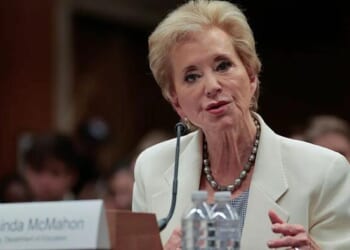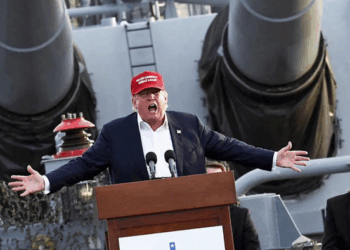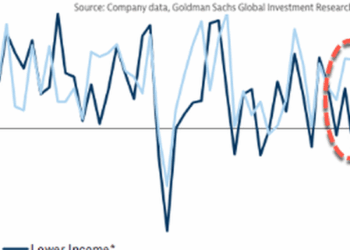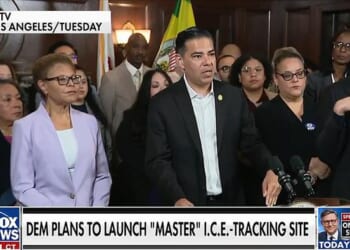
For many years I found my ideological and professional home at the Heritage Foundation. I first joined the organization in 1986 as a policy analyst and departed it in 2021, ending my 35-year tenure there as executive vice president. My years at Heritage taught me many things about how a think tank should—and perhaps equally importantly, should not—operate.
What is a think tank? It is an organization that conducts research on ideas and practices related to public policy, both foreign and domestic, in the hope that its work will reach key decision-makers and lead to better outcomes for the American people. Government-sponsored groups like the Rand Corporation focus on practical policy applications and problems of governance. Academically oriented think tanks like the Brookings Institution and the American Enterprise Institute have distinct ideologies and philosophies but shy away from outright advocacy. Then there is the Heritage Foundation, which has historically sought to strike a balance between research and advocacy.
For most of my time at Heritage, that balance was well maintained. We always tried to avoid the pitfall of sacrificing research for sensationalism and integrity for greater fundraising and the appearance of partisan relevance. There had always been an advocacy role at Heritage, but under the leadership of Ed Feulner and Kay Coles James, it was the policy research staff—not the marketing, fundraising, or outreach arms—that determined which policies were worth advocating for.
Which leads me to my first and most important definition of what a think tank should be. Above all, it should be about ideas. As soon as the purpose becomes advocacy alone, or some other purpose related to gaining money or power, the “think” part is lost. The organization becomes a mere propaganda machine. There is nothing inherently wrong with policy advocacy for its own sake. But an organization that does only that should not be described as a think tank. Nor should its word on policy be trusted. Any policy research organization worth its salt will respect the rules of evidence and argumentation and avoid sensationalist rhetoric and ad hominem attacks. And it should certainly avoid besmirching the think tank’s reputation by flirting with toxic and vile media personalities.
The ideas themselves must have integrity. There is no such thing as pure political science when it comes to policy analysis. All public policies are grounded in one way or another in principles of governance over which much disagreement will occur. But there is a difference between analyzing a policy problem from a particular point of view and simply tailoring your analysis to partisan talking points. The former requires evidence and reasoning, while the latter appeals solely to emotion and prejudice for the purpose of gaining influence and power.
For many years, the Heritage approach was to apply the principles of economic freedom, limited constitutional government, and strong national defense to the task of formulating policies. Today that is no longer the case. The doctrines driving Heritage’s output, as determined by the foundation’s president and the board of trustees, are a combination of Pat Buchanan-esque populism, nationalism, Trumpism, and various strains of what is called postliberalism. There are still some Reaganite conservatives left on the staff, and they write papers and make public appearances. But they are no longer the dominant voice, and their numbers are dropping ever lower amid a recent wave of resignations.
The fusionist conservatism that Heritage once pursued may not have been perfectly unified in theory—there are times when the principle of limited government inevitably collides with the practical demands of maintaining a robust military footprint abroad, for example—but it still reflected a coherent worldview. It was an American tradition inspired by the American founding and confirmed by two and a half centuries of American history. It aspired to balance the values and interests of the American people and to unify them in universal principles of government. This unity was not purely philosophical but practical, seeking to balance the benefits of individual rights and liberty with the demands of personal and social responsibility.
This guiding philosophy is largely absent in the work produced by many conservative think tanks today. Some have jumped aboard the MAGA movement to remain relevant in politics. But the problem is deeper than opportunism. It is the embrace of the postliberal worldview that has transplanted traditional conservatism as defined by Ronald Reagan and William F. Buckley.
Of course, self-declared conservative think tanks aren’t alone in their abandonment of conservative values. But by retrofitting their research to fit the popular partisan narratives of the day, these once-respected policy institutes have sacrificed legitimacy that they may never regain, particularly given the inconsistency of the postliberal movement they now champion.
On the one hand, for example, postliberals purport to possess a deep love of nation. And yet many of the movement’s most influential intellectual voices expressly reject the American founding—the very source of American patriotism—as a failed project. The ideology claims to be a homegrown American movement, but its nationalist variation finds its roots in the blood-and-soil nationalism of Europe—the antithesis of the universalist claims of the Declaration of Independence and the U.S. Constitution. It is no accident that some postliberal intellectuals and think tankers receive funding from Hungary’s nationalist prime minister, Viktor Orbán, or that foreign leaders such as Russia’s Vladimir Putin are embraced by postliberalism’s adherents. They are seen to embody the American ideal better than George Washington, Thomas Jefferson, or James Madison.
Many progressive think tanks and activist groups are enthralled with a postliberal worldview as well, but from a different tradition and for different reasons. Their postmodern progressivism of cultural warfare rejects not only classical liberalism but economic class-based socialism in favor of an identity politics rooted in oppressors and the oppressed. To postliberals left or right, the enemy is capitalism and freedom, and their friend is a state that will reward their class, race, ethnic group, religion, or ideology.
What is more, policy analysis performed by propaganda outlets masquerading as think tanks can become compromised and ignored even by their most partisan supporters. We saw this in President Donald Trump’s disavowal of the Heritage Foundation’s Project 2025 policy blueprint on the campaign trail last year. Trump was not interested in Heritage’s ideas, but he was offended that its leaders implied that the project was speaking for him. Once in office, Trump’s administration pursued policies that were often in sync with Project 2025, particularly concerning immigration, centralizing executive authority, and cutting health care. But that is largely because Heritage consciously crafted Project 2025 to reflect Trump’s agenda. Embracing Trump in this way required Heritage to abandon decades-long positions, such as its opposition to tariffs and backing of robust aid to Ukraine. In addition, despite Heritage’s efforts to accommodate Trump, he often ignored their recommendations, including those for a two-tiered flat tax and the abolition of the Department of Homeland Security.
A think tank such as this is neither fish nor fowl. It loses its very identity, unable to compete with the louder media and propaganda outlets that can always shout louder and be more outrageous to attract attention.
While think tanks of all political persuasions are struggling in their efforts to influence policy and politics, the loss of sound policy organizations on the right has been particularly damaging to the conservative movement. A major reason once-proud conservative think tanks—like Heritage, the Intercollegiate Studies Institute, and Claremont Institute—have lost their way is that they have bought into the notion that traditional conservatism is dead and that its purveyors failed to stop the rise of progressivism.
But this idea isn’t just unprincipled; it has little basis in reality. Trump’s first four years in the White House helped deliver the election of Joe Biden, who accelerated progressive racial and gender policies with a vengeance. Trump has adopted even more aggressive policies and rhetoric in his second term, and his movement’s flirtation with toxic ideologies is giving the far left a new lease on life. Not only is Trump’s personal popularity low and dropping ever lower by the day, but the recent off-year elections appeared to show that Republican gains among minorities in 2024, especially Latinos, have largely disappeared. Trump may be signing executive orders at a record pace, but he is not shepherding meaningful legislation or building consensus that will survive his personal tenure in the White House.
Which means the future of conservatism is up for grabs.
This is where think tanks grounded in traditional conservative values can make a difference. They should be preparing for the day when Trump leaves the scene, and the battle for the heart and soul of the post-Trump conservative movement begins. Who will prevail? The postliberals? The nationalists? The Buchanan paleoconservatives? The Groypers? Or a fusionist conservative movement that makes room for many ideas, as it once did, but which rejects toxic ideas that contradict the universal principles of the country’s founding?
Hopefully the latter. But for that to happen, conservative research institutions must take seriously their commitment to ideas, research, and integrity.
That is the most important watchword—integrity. A solid think tank must have integrity. Its word and its research must be trusted. Once, when Ed Feulner was president of the Heritage Foundation, the late liberal columnist William Raspberry jokingly remarked that he would tear off the pages of Heritage’s policy recommendations but keep the preceding analysis because he knew it was sound. That’s the kind of integrity a policy research organization needs today more than ever.
















